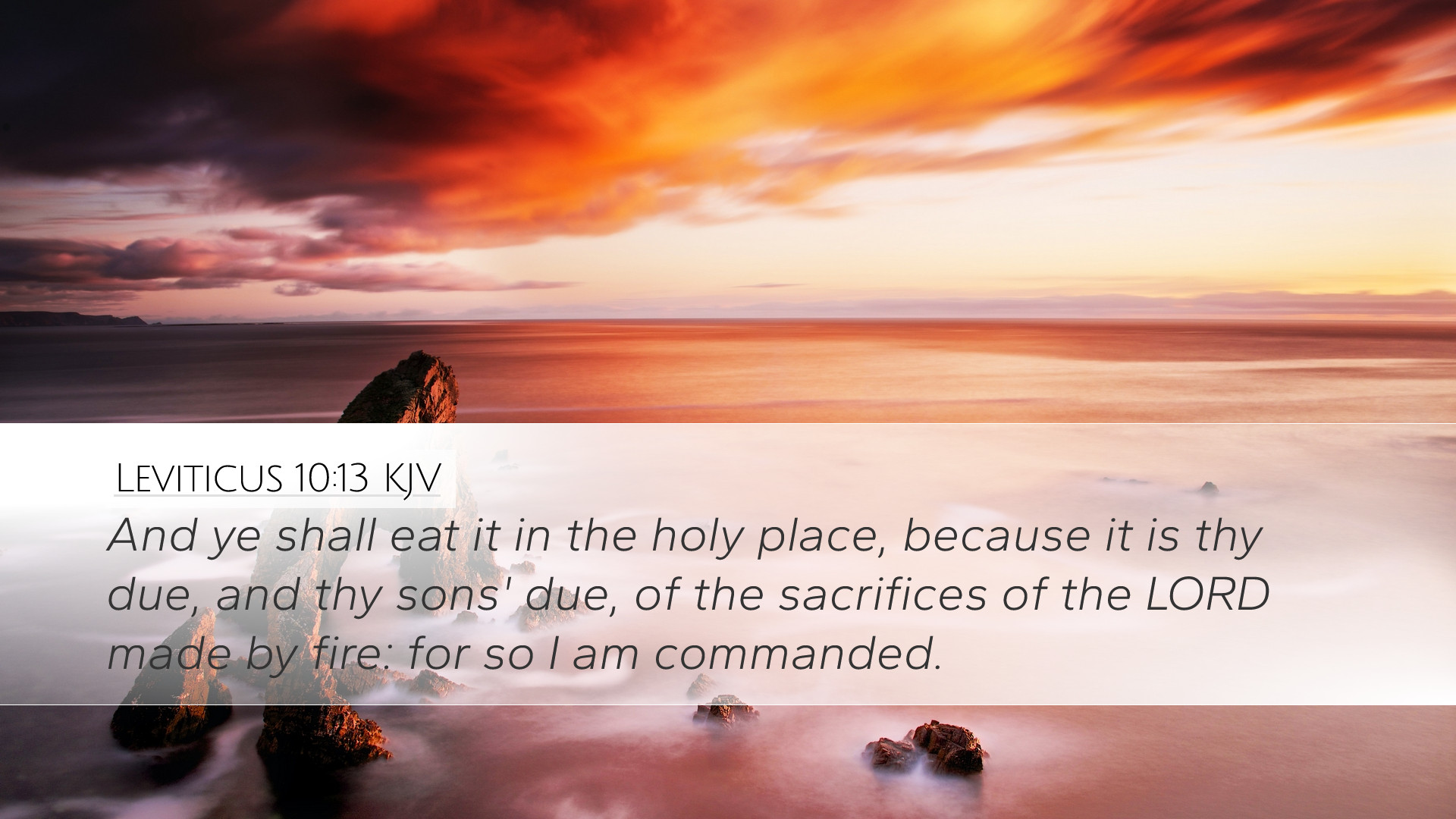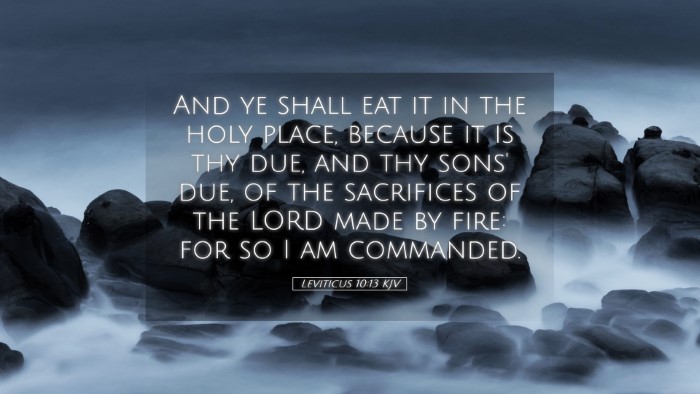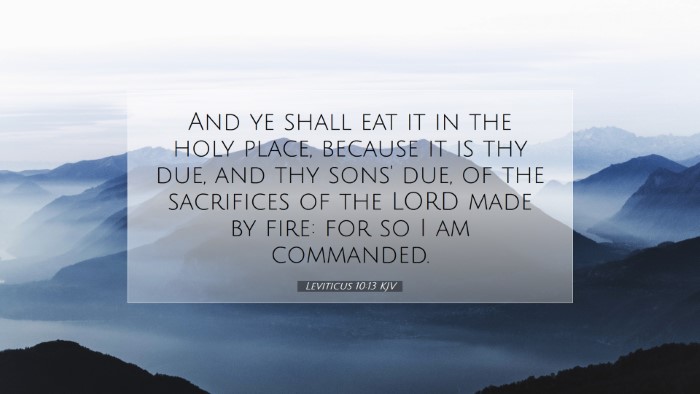Commentary on Leviticus 10:13
Bible Verse: "And ye shall eat it in the holy place, because it is thy due, and thy sons' dues, of the sacrifices of the Lord made by fire: for so I am commanded." (Leviticus 10:13)
Overview
The verse Leviticus 10:13 serves as a critical reflection on the rituals and responsibilities assigned to the priests within the Levitical system. This commentary draws insights from three renowned public domain commentaries by Matthew Henry, Albert Barnes, and Adam Clarke, aiming to unravel its theological significance and practical implications.
The Historical Context
This verse is situated within the aftermath of a significant event involving Aaron's sons, Nadab and Abihu, who had offered strange fire before the Lord. Their deaths served as a stern reminder of the holiness of God and the seriousness of ritual purity in worship. The directive in this verse mandates how and where the priests are to partake of the offerings, reinforcing the sanctity and order within the priesthood.
Theological Significance
- The Holiness of God: This scripture emphasizes the holiness required in the presence of God. The careful specification regarding the eating of the priestly offerings highlights that access to God’s provisions is intimately connected to maintaining ritual holiness.
- Divine Commandments and Human Responsibility: The instruction “for so I am commanded” demonstrates that obedience to divine command is central to the priestly duty. The priest’s obligations arise not from personal desire but from adherence to God’s instructions.
Commentary Insights
Matthew Henry's Perspective
Matthew Henry asserts that this command to eat the offerings in a holy place underlines the honor and privilege associated with the priesthood. By consuming these offerings, the priests partake in the blessings intended for them and acknowledge their role as mediators between God and the people. Henry elaborates on the significance of this practice by noting how it reflects the grace of God, who invites the priests into fellowship with Him through the sacrificial system.
Albert Barnes' Perspective
Albert Barnes provides a detailed examination of the phrase "thy due, and thy sons' dues." He notes that this allocation of the offerings is not simply a physical provision but a representation of spiritual sustenance from God. He draws attention to the broader implications for the church today, highlighting that spiritual leaders are still called to partake in the graces provided by God while also serving their communities. Barnes emphasizes the necessity of receiving these provisions in a manner that is aligned with God’s holiness and intent.
Adam Clarke's Perspective
Adam Clarke approaches this verse with a focus on the broader ramifications concerning proper worship and the duties of the priesthood. Clarke observes that the command demonstrates God’s meticulous nature and concern for the details of worship, an indication that He values both heart and action in the act of sacrifices. He stresses that understanding God’s commandments allows for deeper spiritual nourishment, and he encourages contemporary readers to realize their shared responsibility in maintaining holiness in worship practices today.
Practical Applications
- Holiness in Worship: The call to eat in a holy place reminds modern believers that worship is not merely a personal experience but a communal act of reverence and honor towards God.
- Obedience to Divine Command: This verse serves as a reminder for all believers, especially leaders, to maintain diligence in following God’s directives strictly. The risk of deviating from God’s commands can have significant consequences.
- Understanding Our Role: Just as priests were given specific roles, believers today should comprehend their roles within the body of Christ, ensuring they are spiritually nourished to serve effectively in their communities.
Conclusion
Leviticus 10:13 is rich in theological and historical significance. The specifics surrounding the priestly duties reveal much about God’s design for worship and leadership within the faith community. By pulling insights from the commentaries of Matthew Henry, Albert Barnes, and Adam Clarke, we are reminded of the enduring principles of holiness, obedience, and the communal dimension of worship that transcend time and continue to challenge and inspire the faith of believers today.


